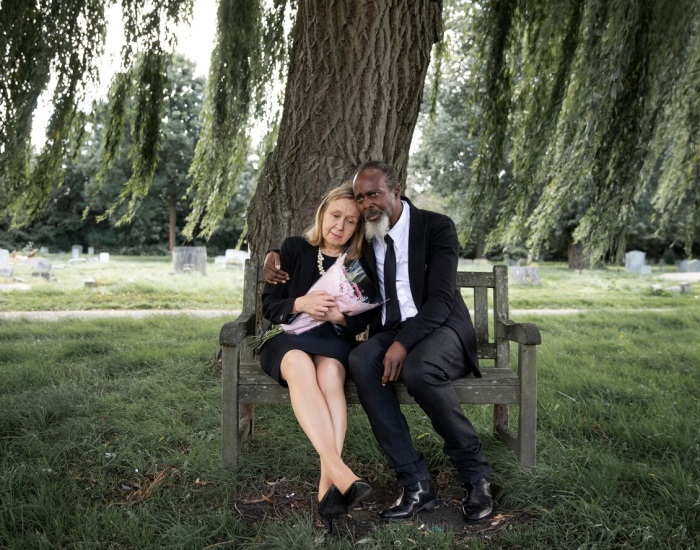A wedding, which is frequently envisioned as a joyous union, may occasionally devolve into an unexpected nightmare when the marriage is called off by Groom at the last minute. This hasty choice has resulted in a tornado of emotions, dashed hopes, and several unresolved questions. The bride, her family, and her friends have experienced unfathomable shock and anguish.
Exploring this difficult issue, we want to provide insight into the emotional, financial, and societal consequences of such an incident. Understanding these consequences and learning from real-life experiences allows us to assist individuals dealing with this difficult and heartbreaking circumstance.
How to handle the marriage called off by Groom at the last minute
1. Understanding the Situation

Definition
What does it mean for a marriage to be called off at the last minute?
Calling off a marriage at the last minute means the groom cancels the wedding just before the ceremony. This unexpected choice often catches the bride, her family, and her guests off guard, causing emotional distress. The unexpected cancelation interrupts well-planned activities, with serious emotional, financial, and social ramifications.
Statistics
Any relevant statistics about last-minute wedding cancellations.
While specific data on last-minute wedding cancellations are hard to come by, research shows that up to 15% of engagements are called off before the big day. Among them, fewer occur within days before the wedding, underlining the rarity yet significance of such last-minute choices.
Common Reasons
Possible reasons why a groom might call off a wedding.
Grooms may cancel marriages at the last minute owing to cold feet, a sudden dread, or concern about their commitment. External influences such as family or societal expectations might also have an impact. Furthermore, unsolved difficulties in the relationship, such as trust or compatibility concerns, may contribute to this dramatic choice.
Cultural and Social Context
How different cultures and societies view last-minute wedding cancellations.
Different cultures and communities have different attitudes about last-minute wedding cancellations. In certain cultures, such cancellations may result in severe shame or stigma, negatively affecting the people and their families. In increasingly individualistic countries, personal well-being may precede community criticism, resulting in more acceptance and support for such actions.
2. The Emotional Impact

On the Bride
Emotional and psychological effects on the bride.
The unexpected wedding cancellation may cause the bride significant shock and confusion, destroying her hopes and aspirations. The emotional anguish and loss often result in a time of grieving and reflection, lowering her self-esteem and throwing doubt on future relationships since trust may be difficult to recover.
On the Families
How it affects both families involved.
For families, the cancellation causes sadness and resentment as they deal with the unexpected change in plans and the emotional consequences. Social stigma and community responses may exacerbate the pressure, affecting their reputation and connections in their social groups. The event may strain family connections, as each member deals with the consequences differently.
On the Groom
Understanding the groom’s perspective.
The groom may feel conflicted feelings, ranging from remorse for hurting loved ones to relief if he feels unprepared or coerced into marriage. Social and family influences might weigh heavily on his decision-making process and complicate his emotional condition. Understanding these dynamics is critical for grasping the full magnitude of a last-minute wedding cancelation.
3. Practical Implications

Financial Losses
Breakdown of potential financial losses.
Cancelling a wedding has serious financial consequences, including non-refundable payments for venues, catering services, and other hired suppliers. These charges, together with the price of invites and apparel, might result in significant financial losses for the couple and their family.
Legal Considerations
Possible legal implications.
In legal terms, canceling a wedding may represent a breach of contract with several service providers. Depending on the agreements agreed upon, there may be legal consequences and financial obligations. In addition, the bride or her family may seek legal action to recover any of the expenditures or losses suffered as a consequence of the cancellation.
Social Repercussions
Impact on social standing and community reputation.
The social consequences of a canceled wedding may be severe, with whispers and gossip fast spreading among social circles. These unfavorable opinions may harm the couple’s and their families’ reputations in the community, resulting in long-term social implications such as strained relationships and distorted perceptions among peers and acquaintances.
4. Coping Strategies

Emotional Support
Importance of seeking emotional support.
Seeking emotional support is critical in dealing with the repercussions of a canceled wedding. Friends and family give a sympathetic environment in which to express emotions and seek solace. Professional counseling or therapy provides organized direction by assisting people in processing their emotions and developing coping strategies to move ahead healthily and constructively.
Practical Steps
Steps to manage the practical aftermath.
Managing the practical aftermath entails responding quickly to vendor cancellations to limit financial damages. Communicating with suppliers about the incident may result in partial refunds or rescheduling. Assessing and managing financial losses is critical, including a thorough study of contracts and even obtaining legal counsel to handle non-refundable charges.
Self-Care
Importance of self-care and personal well-being.
Self-care is essential for healing and rehabilitation from such an emotional upheaval. Taking the time to recover, both physically and psychologically, helps people to process their feelings. Engaging in things that offer pleasure and comfort, such as hobbies or spending time in nature, aids in the restoration of normality and well-being.
Building a Support Network
Creating a circle of trusted individuals.
Connecting with trustworthy persons who give understanding and empathy is essential for developing a support network. Finding support groups, whether in person or online, may help you share your experiences and get guidance. Online communities provide an anonymous area for sharing and support, allowing people to understand they are not alone on their road to recovery.
5. Moving Forward

Healing Process
Steps to start the healing process.
Accepting the circumstance, admitting the suffering, and giving yourself time to mourn are all necessary steps toward healing. This phase of grieving is critical for emotional healing, as it provides a foundation for processing emotions and finally moving ahead with a restored sense of self-awareness and resilience.
Rebuilding Confidence
How to rebuild confidence and trust.
Setting personal objectives that encourage development and self-assurance is the first step in rebuilding confidence. Creating a support network of sympathetic and supportive folks might help you rebuild confidence in yourself and others. Through these processes, one might gradually regain trust in one’s talents and the possibility of future partnerships.
Future Relationships
Approaching future relationships with a healthy mindset.
Approaching future relationships with a healthy mentality entails learning from previous experiences and comprehending the lessons they provide. Staying open to love and trust is important because it allows for personal development and the opportunity to build meaningful relationships without the shadows of previous grief looming over fresh beginnings.
Positive Outcomes
Stories of personal growth and resilience.
Embracing new beginnings entails recognizing the possibility of new possibilities and progress. Individuals might direct their energy into good pursuits by concentrating on personal interests, exploring new hobbies, or even starting a new profession. This proactive approach promotes a positive mindset and a feeling of purpose and satisfaction.
6. Real-Life Stories

Case Studies
Sharing real-life stories of individuals who have experienced this.
Anonymous accounts of those who have experienced last-minute wedding cancellations indicate a variety of results. Some saw fresh beginnings and personal progress, but others took longer to recover. These stories provide important insights into the many emotional paths and fortitude necessary to overcome such a life-changing tragedy.
Lessons Learned
Key takeaways from these stories.
These tales provide essential insights about perseverance and courage in the face of hardship. The value of having solid support networks, such as friends, family, and therapy, becomes clear. These factors are critical in assisting persons with their emotional healing and rebuilding their lives.
Expert Opinions
Insights from psychologists and counselors.
Psychologists and counselors provide expert advice, stressing the necessity of obtaining professional assistance when necessary. Their findings highlight beneficial coping techniques, such as mindfulness practices, therapy, and developing a support network, which is critical for emotional healing and moving ahead following a last-minute wedding cancellation.
Personal Growth
Stories of transformation and new beginnings.
These real-life stories also feature instances of personal change in which people used their experiences to develop fresh beginnings. They sought new hobbies, job shifts, or educational possibilities to rediscover their sense of purpose and direction. These tales serve as motivational reminders of the potential for development and happiness after overcoming adversity.
Conclusion
The groom’s abrupt cancellation of a wedding is a very unpleasant and disruptive occurrence that leaves emotional, financial, and social scars. The bride and both families face a difficult path to recovery, but it is possible with patience, support, and self-care.
Individuals might find comfort and resilience by understanding the reasons behind such actions and learning from others’ experiences. Moving ahead, it is critical to accept fresh beginnings and believe in personal development. Despite the grief, these experiences may result in significant self-discovery and strength, paving the path for a better, more meaningful future.







